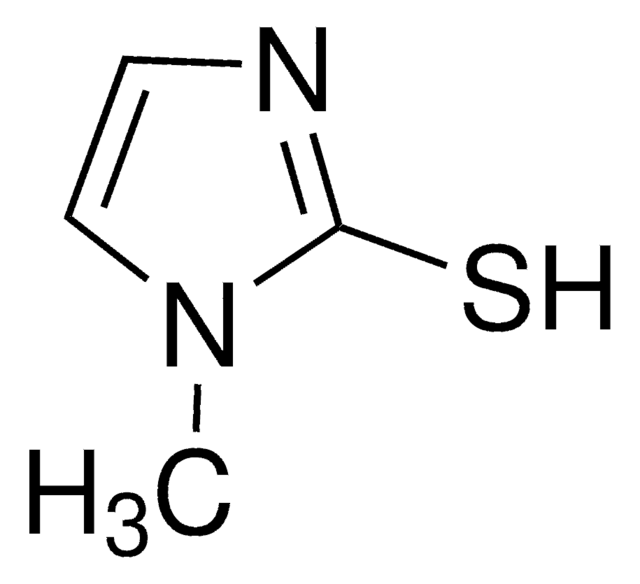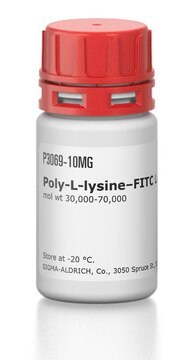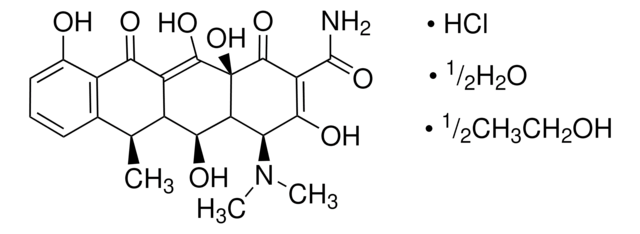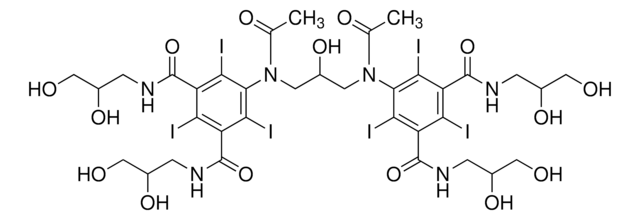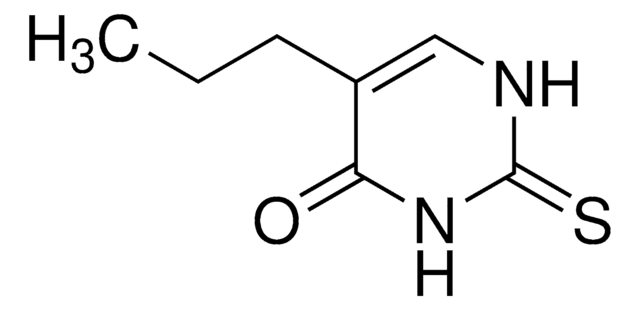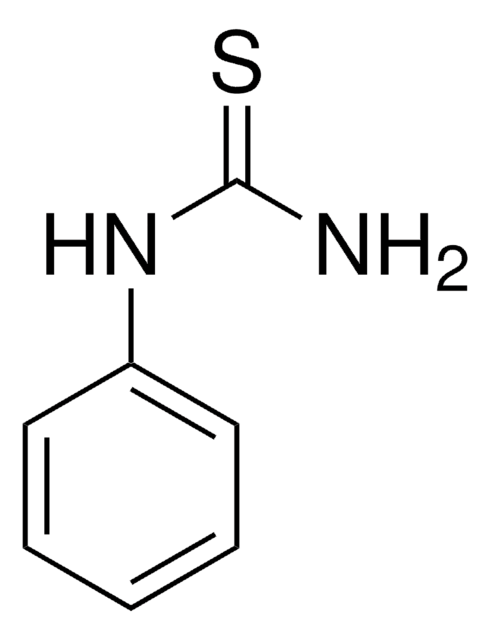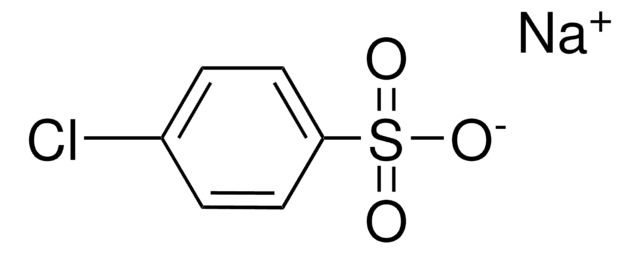P3755
6-Propyl-2-thiouracil
enzyme inhibitor
Sinónimos:
2,3-Dihydro-6-propyl-2-thioxo-4(1H)-pyrimidinone, 4-Hydroxy-2-mercapto-6-propylpyrimidine
About This Item
Productos recomendados
description
enzyme inhibitor
Quality Level
assay
≥99% (HPLC)
form
powder
mp
218-220 °C (lit.)
solubility
10% NH3: 100 mg/mL, clear to slightly hazy, colorless to faintly yellow
SMILES string
CCCC1=CC(=O)NC(=S)N1
InChI
1S/C7H10N2OS/c1-2-3-5-4-6(10)9-7(11)8-5/h4H,2-3H2,1H3,(H2,8,9,10,11)
InChI key
KNAHARQHSZJURB-UHFFFAOYSA-N
Gene Information
human ... DIO1(1733) , TPO(7173)
¿Está buscando productos similares? Visita Guía de comparación de productos
General description
Application
Biochem/physiol Actions
signalword
Warning
hcodes
Hazard Classifications
Acute Tox. 4 Oral - Carc. 2
Storage Class
11 - Combustible Solids
wgk_germany
WGK 3
flash_point_f
Not applicable
flash_point_c
Not applicable
ppe
Eyeshields, Gloves, type P3 (EN 143) respirator cartridges
Elija entre una de las versiones más recientes:
¿Ya tiene este producto?
Encuentre la documentación para los productos que ha comprado recientemente en la Biblioteca de documentos.
Los clientes también vieron
Nuestro equipo de científicos tiene experiencia en todas las áreas de investigación: Ciencias de la vida, Ciencia de los materiales, Síntesis química, Cromatografía, Analítica y muchas otras.
Póngase en contacto con el Servicio técnico